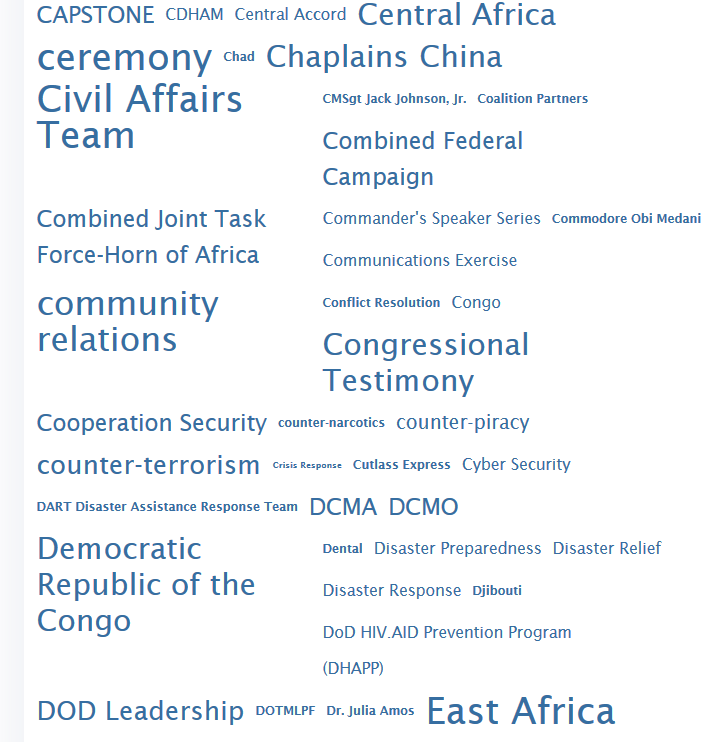Citing an April 2013 report (which has yet to be released to
the general public), Congress “calls for the end of the $22 million Trans
Regional Web Initiative” according to USA Today (see: http://www.usatoday.com/story/nation/2014/01/02/trans-regional-web-initiative-defense-bill/4291467/).
Overview of the solicitation for the services can be found at: https://www.fbo.gov/index?s=opportunity&mode=form&id=408762b903dfc1df112bceda5b9aa149&tab=core&_cview=0
Essentially Combatant Commanders (COCOM) such as the Central
Command (CENTCOM) and Pacific Command (PACOM) developed websites which were
intended to directly support the COCOM CDR’s initiatives in the region. The
General Account Office (GAO) asserted in its report that these efforts were not
effective partially because they were not well coordinated with other US (read
that State Department) efforts.
This strikes me as a good decision.
From what I can tell, most successful influence population efforts
have been bottom up. This is particularly true in situations where the
countries in question are rural, tribal and/or heavily illiterate as is the
case in Afghanistan. Top down campaigns orchestrated by 4* Commands through
intermediaries is not likely to be very effective.
If the Trans Regional Web initiative was targeted against
high level officials, the elite, diplomatic corps, academics, etc. then it was
a battleship seeking to destroy a row boat – meaning that the website is not
the optimal nor most cost efficient means to reach that audience.
I have often lamented the lack of a National Influence
Strategy and this most recent debacle confirms the need for such a document as
guidance to DOD and the Department of State for them to harmonize their
influence efforts.
Another interesting angle is the ineffectiveness of US
Public Diplomacy ultimately rests with the President and the Secretary of
State, perhaps the Republicans will latch on to this as a plank in their platform
to defeat the Democrat’s most likely Presidential Candidate, Hillary Clinton,
former Secretary of State.
Photo: Africom by keyword from www.africom.mil

Odd that the "authoritative source on all things MISO" posts this and agrees with a decision that is motivated solely by politics and has nothing to do with effectiveness, which this program has proven time and again. An earlier posting on this same blog praised the program to the heavens after a briefing on it. What changed? When did you believe all you read in the news (USA Today no less!)? You are smarter than that. Call those in the know and ask before you post away, please. BTW, must have missed the post where the White House defended the same program - USA Today got that one as well.
ReplyDelete@Anonymous - thanks for the comment. Of course everything that Congress does is political. I don't believe I have ever received a briefing on the program. USA Today seems to be the pub that generates the most buzz about MISO/IO. Of course they are not the Economist, so motive is an issue. Other readers have asked me to be more controversial - COCOMs in the Web business as the .mil - fine; COCOMs in the Web business - not sure that's the best use of our resources.
ReplyDeleteThanks for the response. Check your archives. Couple of years ago, you were at Bragg and got a brief along with a bunch of other briefs. No matter. At under $.50/article read - find any MISO matching that cost effectiveness. No TDY costs, no security issues and measurable TA behavior back.
ReplyDelete@Anon - from the detail sounds like you might have been a part of this effort. Perhaps the briefing was a part of Regimental Week some years ago. At lunch today with a Silicon Valley Communications Manager - she advised that websites are as passe as 'corporate brochures'.
ReplyDelete@Anon - your .50 number is a measure of performance - cost/look; not effectiveness. You have no way of knowing who was looking and how or if they were effected.
ReplyDeleteIt is neither, what I said was cost effectiveness, not MOP or MOE. We know exactly who is looking (cookies, GEOIP) and can track their online behaviors as a result.
ReplyDeleteOK. Got your point. Recommendations on dealing with Congress?
ReplyDelete